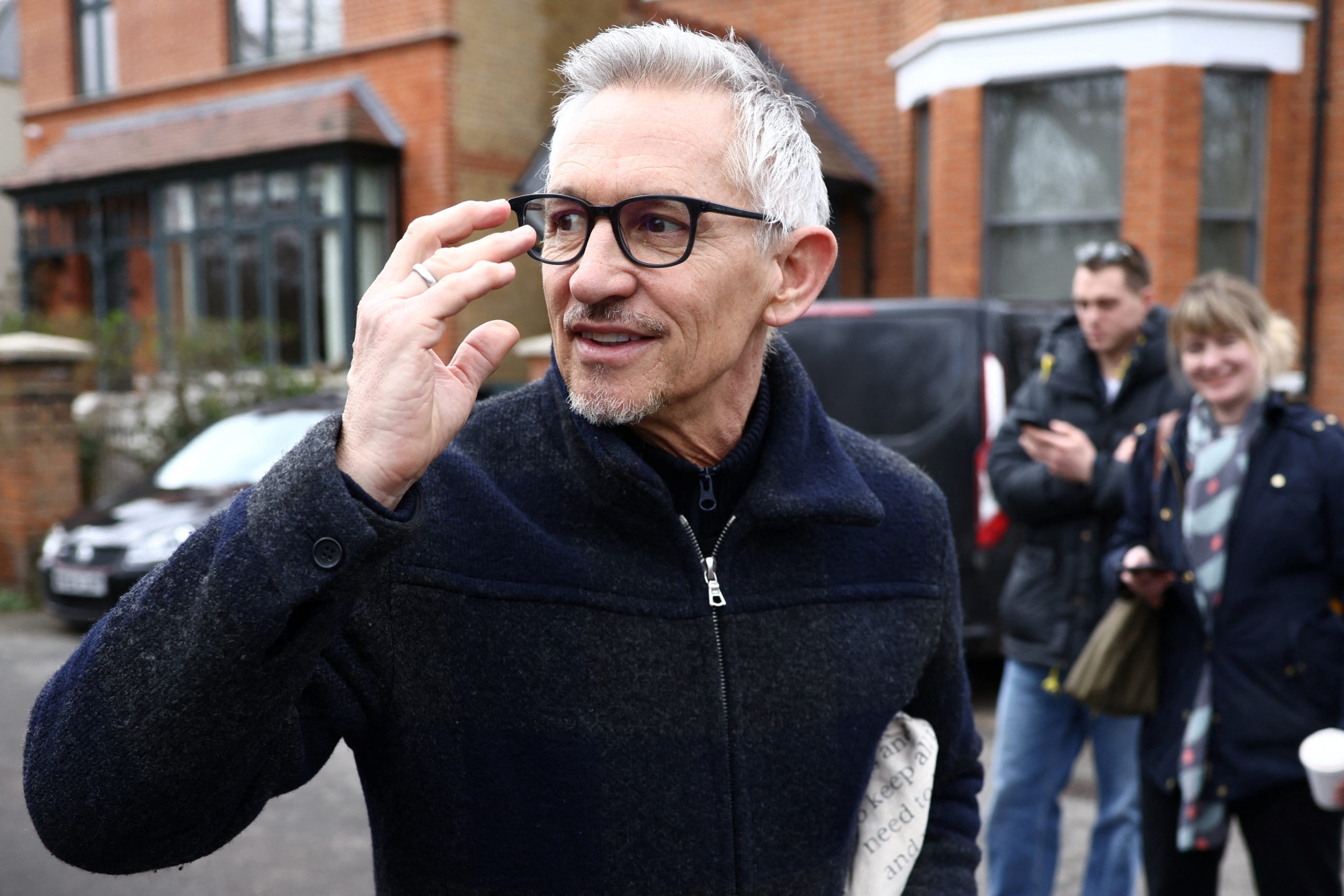
[elfsight_social_share_buttons id=”1″]
Britain’s BBC reinstated its highest-paid presenter Gary Lineker on Monday after it suspended the former England football captain for criticizing state immigration policy brought a public backlash and near mutiny at the public broadcaster.
Embarrassingly for the BBC, it had to axe core weekend sports coverage after presenters, pundits, and commentators refused to work in solidarity with Lineker.
Some staff, opposition politicians, and commentators accused the corporation, which has a mandate to be neutral, of bowing to pressure from the government, prompting Prime Minister Rishi Sunak to urge a swift resolution of the situation.
The affair also renewed questions over the credibility of BBC chairman Richard Sharp. He failed to declare facilitating a loan for former Prime Minister Boris Johnson shortly before he was appointed to the role by the government.
The 62-year-old Lineker, a prolific striker who won the Golden Boot with England at the 1986 World Cup, is expected to return on Saturday for the flagship Premier League highlights show “Match Of The Day” which he has hosted since 1999.
“I have been presenting sports on the BBC for almost three decades and am immeasurably proud to work with the best and fairest broadcaster in the world,” he tweeted, before returning to the topic of immigration.
“However difficult the last few days have been, it simply doesn’t compare to having to flee your home from persecution or war to seek refuge in a land far away.”
The publicly-funded BBC suspended him for breaching impartiality rules by comparing the rhetoric of interior minister Suella Braverman to language used in 1930s Germany.
Braverman has described the arrival of thousands of asylum seekers on small boats as an “invasion” and said that without a legal change, 100 million people could be entitled to enter.
REFUGEE DEBATE
Lineker has previously hosted refugees in his home and co-founded a podcast production company whose shows include the popular “The Rest is Politics”. He had called the new government hardline policy towards boats “immeasurably cruel.”
The furor came as the broadcaster seeks to navigate increasingly polarised debates in Britain over everything from trans rights to immigration and colonial history.
One senior BBC News employee said Lineker’s tweets had arguably undermined its attempt to stay impartial but said most anger within the corporation was directed at the chairman.
“Everyone suspects, though we can’t know for sure, that if Lineker had tweeted support for the government’s migrant policy then he wouldn’t have been suspended,” the employee told Reuters, asking to remain anonymous.
The BBC said it would now review how freelancers such as Lineker, in areas outside news, can use social media.
Sunak’s spokesperson welcomed the resolution.
The BBC board, led by chairman Sharp, welcomed the agreement and described impartiality as a “cornerstone” of the BBC.
Keir Starmer, the leader of the opposition Labour Party, said Sharp’s position was increasingly untenable.
Tim Davie became BBC director general in 2020, vowing to uphold the corporation’s impartiality, one of the principles used to justify the 159 pounds ($192) a-year license fee imposed on every TV-watching household.
He said in a BBC interview on Monday that the suspension had been appropriate and that the presenter had agreed to stick to current editorial guidelines until a new policy is formed.
However, in a statement announcing the agreement with Lineker, he acknowledged “potential confusion caused by the grey areas” of those guidelines and welcomed him back.
“I know how much the BBC means to Gary, and I look forward to him presenting our coverage this coming weekend,” he said.
Lineker was supportive, saying Davie had “an almost impossible job keeping everybody happy, particularly in the area of impartiality.”
Copyright 2023 Thomson/Reuters
